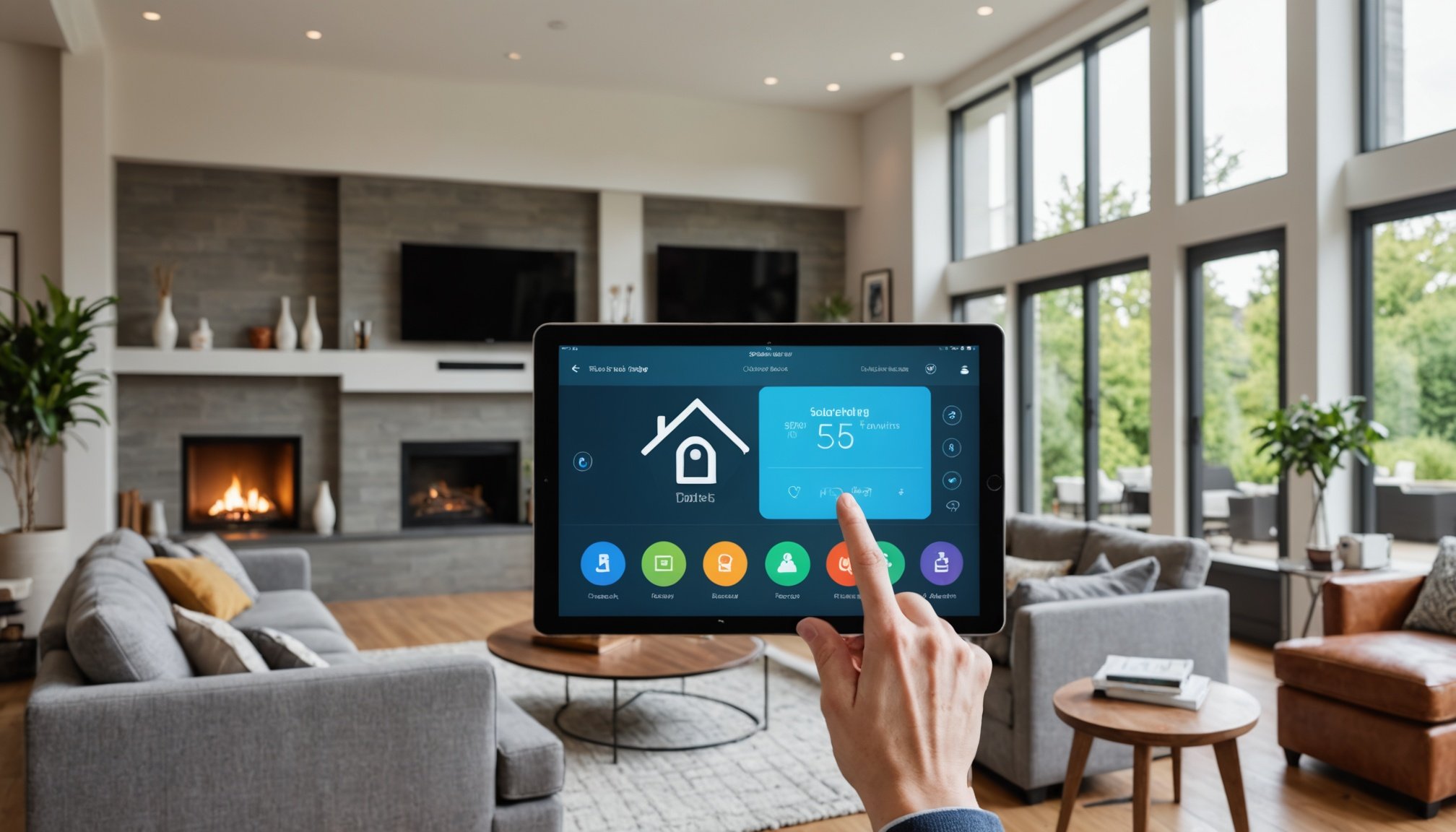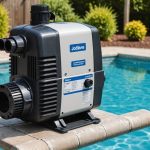Overview of Smart Home Technology Integration
Incorporating smart home technology into properties is no longer a mere trend but a transformative force in the Bristol real estate market. Smart technology, defined broadly, encompasses devices and systems that automate tasks traditionally performed manually, such as controlling lighting, heating, and security. The benefits are multifaceted, ranging from enhanced convenience and energy efficiency to improved security measures.
Bristol’s real estate trends increasingly reflect the growing demand for homes equipped with such features. Buyers are more inclined towards properties boasting integrated smart technology, as these not only offer convenience but also promise a better return on investment. As smart home features continue to enhance property value, they stand out as an attractive prospect for forward-thinking homeowners.
Additional reading : Unearthing sustainable shopping: your ultimate guide to eco-friendly practices in cambridge
Moreover, integrating smart devices can significantly impact a home’s valuation. For instance, energy-efficient systems and advanced security solutions can lead to cost savings and an improved living experience. As the appetite for smart technology grows, staying informed and adaptive to these changes can provide homeowners and investors a competitive edge in the Bristol property market.
Types of Smart Home Technologies
In the realm of home automation systems, security devices and energy management solutions are leading the charge in transforming residential spaces. Security devices like smart cameras and alarms provide enhanced protection by allowing homeowners to monitor their properties in real-time, even remotely. These devices can be integrated with smartphones, offering instant alerts and live feeds for more robust security measures.
Also to see : Effective approaches to track property value appreciation in manchester”s gentrifying neighborhoods
Smart thermostats represent a key component in energy management, enabling precise climate control to enhance comfort and save on utility bills. These thermostats learn from your habits, adjusting temperatures automatically to ensure both efficiency and environment-friendly operations. Smart lighting systems go beyond mere functionality, allowing users to control ambiance and lighting schemes via mobile apps, contributing to energy efficiency and aesthetic appeal.
Successful smart homes rely on the seamless integration of these technologies, ensuring they work together efficiently. Emerging technologies are progressively focusing on interoperability, creating a cohesive system where all devices communicate seamlessly. This integration not only enhances user convenience but also amplifies the utility of each device, making the transition to a smart home more rewarding for property owners.
Installation Tips for Smart Home Devices
Transitioning to a smart home can seem daunting, yet understanding the basics of smart home installation provides much-needed clarity. For enthusiasts considering a DIY approach, it’s critical to first research compatibility among devices to ensure seamless integration. Start by installing simpler devices like smart plugs or bulbs, which require minimal setup and can be controlled via smartphone apps. Always follow manufacturer instructions to avoid mishaps.
However, when dealing with more complex systems, such as in-depth security devices or comprehensive home automation systems, hiring a professional might be prudent. Their expertise can preempt issues such as incomplete installations and device incompatibilities, ensuring everything functions optimally from the outset.
Regardless of the installation method chosen, some universal best practices apply. Firstly, maintain a stable and strong Wi-Fi connection throughout your home, as most devices rely heavily on network communication. Secondly, securely store passwords and regularly update software to mitigate security risks. Finally, before delving into installations, verify that your purchases align with the existing electrical setup, avoiding unexpected costs or safety hazards.
Cost-Benefit Analysis of Smart Home Integration
Understanding the cost-benefit analysis of integrating smart home technology is crucial for potential investors and homeowners. Initial expenses can range from moderate to significant, depending on the type of devices and level of automation desired. However, these upfront costs often translate into notable long-term savings, particularly on utilities.
Smart home cost considerations are not limited to purchasing devices alone; they also include installation and maintenance expenses. Despite this, smart thermostats and energy management systems provide considerable utility savings over time, offering a compelling return on investment. Comparing costs across various brands and evaluating each device’s capabilities can help in making an informed decision.
Calculating the potential return on investment involves considering energy savings, enhanced security, and increased home appeal in the market. In the Bristol housing market, properties equipped with advanced smart technologies have shown higher valuation growth rates. Consequently, integrating smart home features can increase a property’s marketability and financial returns over time, making them a valuable addition to your home investment portfolio.
Case Studies of Successful Smart Home Integrations
Smart home examples from Bristol showcase how these technologies can significantly enhance property value. Take the case of a Victorian-style property in Clifton, which integrated smart lighting, heating, and security within its restoration. The addition of such features not only modernized the residence but also increased its market value by over 15%. By equipping the home with energy-efficient smart thermostats and remote-controlled lighting systems, energy consumption was reduced, offering impressive long-term savings.
Another notable example in Redcliffe involved transforming a standard apartment into a technologically-savvy dwelling. The key elements here included advanced security devices, smart home automation systems, and energy management solutions. These integrations contributed to a 20% rise in property value, demonstrating the market’s positive reception of such enhancements.
Residents report increased satisfaction due to improved convenience and security. Homeowners considering smart integrations can learn from these successes, ensuring that their properties meet both current demands and future trends. The Bristol real estate trends highlight an ongoing shift towards smart features, illustrating a lucrative opportunity for forward-thinking property owners.
Local Regulations and Considerations
Before diving into smart home technology, homeowners need to navigate Bristol’s regulations carefully. Understanding local building codes and regulations is crucial, as these govern the installation and use of many smart devices. Some installations may require specific permits, especially if they involve significant changes to the electrical or structural integrity of a home.
When planning to enhance a property with smart technology, ensure compliance with the local installation permits. These permits are often necessary for extensive home automation systems, especially those integrating security and energy management upgrades. Failing to obtain required permits can lead to fines and may complicate future real estate transactions.
To streamline the process, consider consulting with professionals familiar with regional smart home compliance. They can help navigate the legal aspects, ensuring all upgrades meet Bristol’s standards, avoiding potential setbacks. Keeping abreast of changes in regulations and preparing documentation accordingly can save time and resources, letting you focus on the benefits of smart home integration. Proper adherence to these guidelines ensures a smoother transition into the world of smart homes, safeguarding your investment.
Local Regulations and Considerations
Deciphering Bristol’s regulations is pivotal for homeowners eager to integrate smart home technology. Due to specific local building codes, certain installations necessitate compliance with detailed regulations that govern their use and integration. For instance, substantial alterations involving the home’s electrical or structural framework, common with installations of complex home automation systems, may require installation permits. These permits ensure that all modifications comply with safety standards.
Securing the necessary permits can prevent potential headaches, such as fines or legal complications during property sales. To ensure a smooth process, consulting professionals with expertise in smart home compliance is advisable. These experts can guide homeowners through requisite documentation, helping them meet Bristol’s regulatory standards.
Remaining informed about any changes to regulations is crucial. This proactive approach could save valuable time and resources. By keeping abreast of local requirements, homeowners can focus on the advantages of incorporating smart technology, augmenting their property’s value with peace of mind. Such due diligence not only safeguards investments but also blends innovation with legal assurance.





